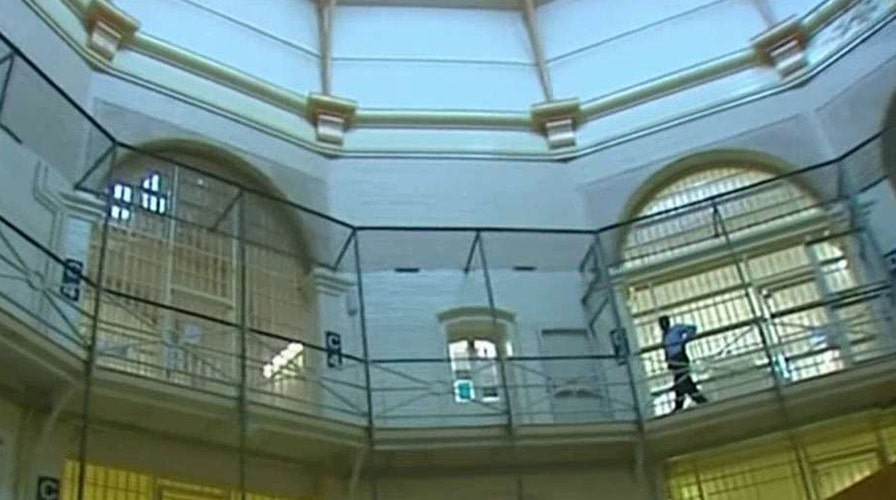UK prisons have become a breeding ground for terrorists
The government is seeking to separate extremist inmates from other prisoners; Benjamin Hall explains on 'Special Report'
British prisons have become alarmingly fertile breeding grounds for terrorism, according to new government research that supports the long and widely held beliefs that UK lockups too often double as jihadi training camps.
Many of the terror attacks that have plagued Europe in recent years bear a common, chilling hallmark: They were carried out by attackers who went into prison as petty criminals and emerged as hardened terrorists. Officials armed with sobering new research now want to take steps to isolate known jihadists from the general prison population in a bid to stop recruitment.
“We cannot have a situation where we have extremist prisoners influencing others who are vulnerable to those messages,” said Justice Minister Liz Truss.
The case of radical firebrand Anjem Choudary, who was recently sentenced to 10 years in prison for supporting ISIS after years of openly espousing Islamist hate, has brought increased attention to the issue. Charismatic and committed jihadists like Choudary have a ripe and captive audience behind bars, say those in a position to know.
“What makes a good recruit is somebody who is already disenfranchised, someone who is anti-establishment, who holds some kind of resentment,” said former jihadist Adam Deen.
One former prisoner told Fox News of the time in 2014 when word made its way through the cellblock that Mosul had fallen to ISIS. The high-security prison erupted with chants of “Allahu Akbar. “
“It was like a big party that went on unchecked for several hours,” he said.
Another former prisoner and reformed jihadist, Adam Deen, explained why prisoners are so susceptible to Islamist proselytizing.
“What makes a good recruit is somebody who is already disenfranchised, someone who is anti-establishment, who holds some kind of resentment,” Deen said.
The U.S. prison system is also facing the problem – with Muslim groups acting like gangs, recruiting people and protecting their own, according to former Al Qaeda recruiter and convict Jesse Morton, who is now working at a think tank at George Washington University.
“The individual charismatic preacher who radicalized me while I was incarcerated, became like a father,” he said.
Morton also says he saw dozens of prisoners radicalized around him in the three years he was imprisoned, and said that many radical preachers had not been identified by the authorities.
"Even later in life, when I was incarcerated for terrorist-related crimes, it went on very frequently in general, mainstream or medium or high-security prisons as well,” he said.
The issue could loom even larger, say experts, should the remaining Guantanamo detainees be transferred to U.S. prisons, where they could get prison’s equivalent of rock star treatment.
The UK has learned the hard way, after a number of terror attacks were carried out by people radicalized in prison. Now, hopes for ending the bloody trend lie in segregating some of the most dangerous and charismatic members of prison populations.








































